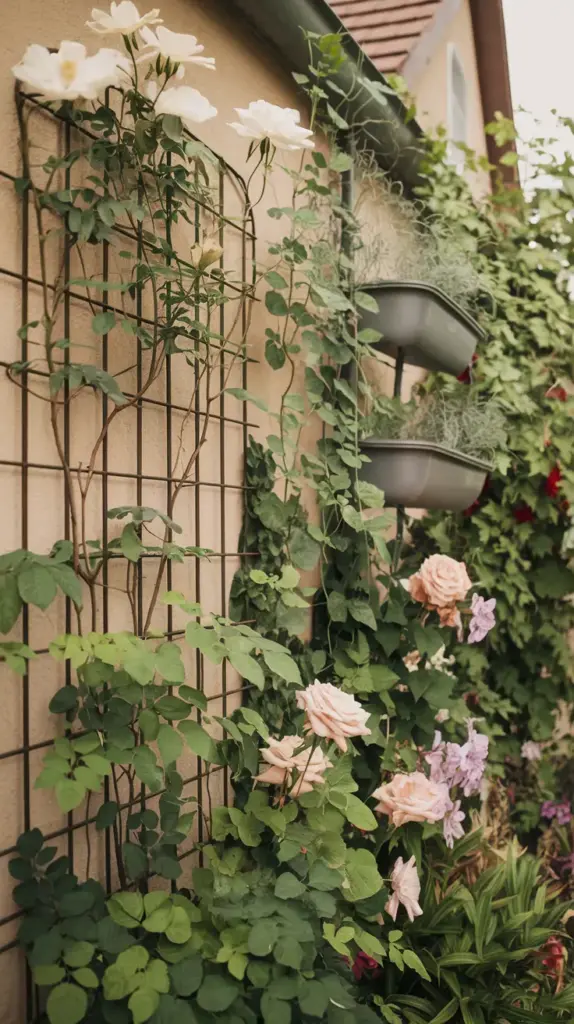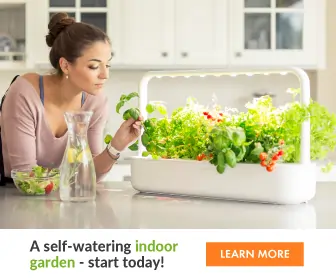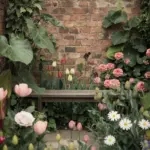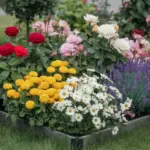6. Vertical Garden Elements: Making the Most of Your Wall Space

Let me tell you something – vertical gardening completely changed my approach to small space gardening. After years of feeling frustrated with my narrow foundation border, I discovered the magic of growing upward, and I’ve never looked back!
Choosing the Right Climbing Plants
When I first started experimenting with climbing roses and clematis, I made the rookie mistake of not checking their mature size. Trust me, you don’t want to learn this lesson the hard way! Now I always recommend starting with more manageable climbers like the ‘New Dawn’ climbing rose or the ‘Nelly Moser’ clematis. These varieties are perfect for foundation plantings because they’re both vigorous enough to create impact but won’t overwhelm your house’s facade.
The key is to install your trellis about 6-8 inches away from the wall. This creates crucial air circulation and makes maintenance so much easier. I learned this after spending countless weekends trying to prune roses that were practically glued to my siding!
Wall-Mounted Planters: The Game Changer
Wall-mounted planters are absolutely brilliant for small spaces. I’ve installed a series of these beauties along my garage wall, and they’ve transformed what used to be a blank canvas into a living tapestry. Here’s what I’ve found works best:
- Use self-watering planters whenever possible
- Install them at varying heights for visual interest
- Choose plants with different textures and trailing habits
- Make sure your mounting system can handle the weight when planters are fully saturated
Creating Cascading Effects
My absolute favorite way to add drama to vertical gardens is through cascading flowers. Trailing petunias, calibrachoa, and sweet alyssum have become my go-to choices for hanging baskets. The secret to those Instagram-worthy cascades? Plant them closer together than you think you should – I usually put about 5-6 plants in a 14-inch basket.
Space-Saving Structures
Let’s talk about vertical structures. I’ve experimented with everything from traditional lattice panels to modern cable systems. The game-changer for me was discovering modular garden panels that can be customized to fit any space. They’re perfect for creating living walls that don’t take up precious ground space.
One tip that’s saved me countless headaches: Always ensure your vertical structures are properly anchored. Nothing’s worse than watching your beautiful garden creation topple over during the first summer storm (yes, unfortunately, I’m speaking from experience here!).
Ready to discover another exciting way to enhance your foundation garden? Click the “next” button below to learn all about creating a Mediterranean-style border that’s both drought-resistant and absolutely stunning. I’ll show you how to combine lavender, sage, and ornamental herbs in a way that’ll make your neighbors think you hired a professional landscaper!











GIPHY App Key not set. Please check settings